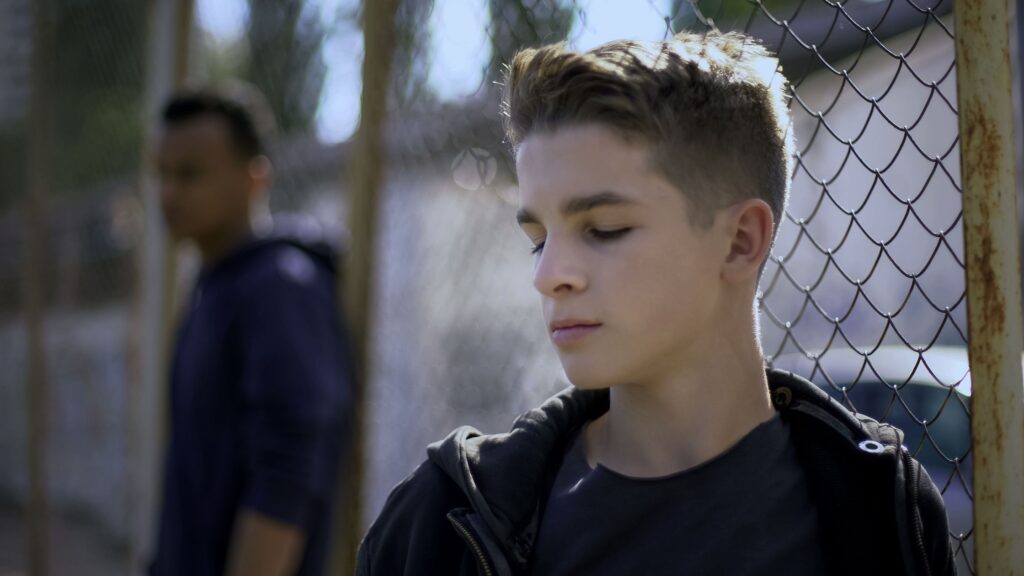During National Youth Justice Awareness Month, we delve into the complex issue of the school-to-prison pipeline, its root causes, and how organizations like Believe in Me are making a difference.
Introduction
In the United States, the path from a school classroom to a prison cell is unfortunate for many young individuals, particularly those from marginalized communities. This phenomenon, known as the school-to-prison pipeline, represents a distressing detour in the lives of countless young people, where what should be an educational journey turns into a route leading to incarceration instead of enlightenment.
During National Youth Justice Awareness Month, we must shine a light on this pressing issue, explore its intricate complexities, and understand how we can make a meaningful impact.
Understanding the School-to-Prison Pipeline
What is the School-to-Prison Pipeline Theory?
The school-to-prison pipeline is not a physical structure but a symbolic path that ensnares students, often starting with minor disciplinary issues, eventually leading them to involvement with the criminal justice system. This tragic cycle disrupts their educational journey, jeopardizes their futures, and perpetuates a vicious cycle of incarceration.
At its core, the pipeline thrives on harsh disciplinary practices prioritizing punishment over rehabilitation, disproportionately affecting marginalized youth. These practices include zero-tolerance policies, over-policing in schools, discrimination, and a lack of resources. To dismantle this pipeline, we must first understand its root causes.
Causes and Major Factors
What Causes the School-to-Prison Pipeline?
The school-to-prison pipeline is a complex issue rooted in systemic problems within our education and justice systems. Understanding the key contributing factors is crucial:
Zero-Tolerance Policies: Many schools have adopted zero-tolerance policies, which mandate severe punishments for even minor infractions. This “one-size-fits-all” approach often leads to marginalized students facing disproportionate consequences for their actions.
Over-Policing: In some schools, police officers are a familiar presence. While their role is ostensibly to maintain safety, their company can increase the likelihood of students becoming involved in the criminal justice system for actions that could be better addressed through an educational approach.
Discrimination: Racial and ethnic bias is pervasive within the pipeline. For example, African American and Hispanic students are more likely to experience disciplinary actions and involvement in the justice system than their white counterparts, even for similar infractions.
Poverty and Lack of Resources: Schools in impoverished neighborhoods often lack resources for crucial support services like counseling, mental health support, and extracurricular activities. This lack of support leaves students vulnerable to the pipeline’s pull.
Impact on Marginalized Youth
Which Group of Students Are Most Affected?
Marginalized youth, particularly students of color and those from low-income backgrounds bear the brunt of the school-to-prison pipeline’s impact. African-American and Hispanic students are disproportionately subjected to harsh disciplinary measures. They are more likely to find themselves entangled in the criminal justice system, creating a devastating cycle that is difficult to escape.
How Does the Pipeline Disproportionately Affect Marginalized Youth?
Marginalized youth face a higher risk of entering the pipeline and encounter more severe consequences once ensnared. This results in a harrowing cycle of incarceration, limited opportunities, and broken dreams, perpetuating the cycle of disadvantage and inequality.
To illustrate this point further, let’s consider real-life examples from an article by Learning for Justice:
Real-Life Examples of Pipeline Effects
Meridian, Mississippi: In Meridian, Mississippi, police routinely detain and transport youths to a juvenile detention center for minor behavioral issues that occur within the classroom. This practice criminalizes students for behavior that should be addressed through education and counseling.
Jefferson Parish, Louisiana: According to a U.S. Department of Justice complaint, school officials in Jefferson Parish, Louisiana, have given armed police “unfettered authority to stop, frisk, detain, question, search, and arrest schoolchildren on and off school grounds.” This level of authority results in a culture of intimidation and over-policing.
Birmingham, Alabama: In Birmingham, Alabama, police officers are permanently stationed in nearly every high school, contributing to an environment where students feel constantly monitored and criminalized.
These examples highlight the pervasive nature of the school-to-prison pipeline, where minor misbehaviors often lead to criminalization.

Initiatives and Programs
What Initiatives or Programs Exist to Address the Pipeline?
Addressing the school-to-prison pipeline requires a comprehensive approach, and numerous organizations and initiatives are dedicated to this cause. Believe in Me emerges as a beacon of hope among them.
Believe in Me’s Vision and Mission
Believe in Me envisions a world where all children have the self-confidence they need to succeed. Their mission is to fund youth empowerment programs that provide marginalized children with a haven, a supportive family, a sense of community, opportunities for learning, self-esteem building, and recreation.
Preventing Entry into the Pipeline
How Can Schools Work to Prevent Marginalized Youth from Entering?
Preventing marginalized youth from entering the school-to-prison pipeline requires proactive measures within the education system. Schools can take several steps:
Restorative Justice Practices: Implementing healthy justice practices fosters a culture of empathy and accountability, addressing conflicts and disciplinary issues through dialogue rather than punitive measures.
Mental Health Support: Prioritizing mental health services and counseling within schools helps students cope with underlying issues that may contribute to behavioral problems, offering them the support they need to succeed.
Mentorship Programs: Establishing mentorship programs connects students with positive role models who guide, inspire, and provide a lifeline to those in need, reducing the likelihood of engaging in harmful behaviors.
Advocacy and Getting Involved
How Can I Get Involved in Advocating for Youth Justice?
Individuals play a pivotal role in advocating for youth justice and addressing the school-to-prison pipeline. Here are some ways to make a meaningful impact:
Support Organizations: Consider contributing financially or volunteering your time to organizations like Believe in Me, which are actively working to empower marginalized youth.
Volunteer: Offer your time and expertise to mentor, tutor, or support young people in your community, helping them navigate the challenges they face.
Advocate for Policy Changes: Advocate for policy reforms at the local, state, and federal levels to address systemic issues perpetuating the pipeline.
Joining Forces for Youth Justice
The school-to-prison pipeline is a deeply concerning issue with far-reaching consequences, but not impossible. Organizations like Believe in Me are leading the charge to empower marginalized youth and break the cycle of despair. During National Youth Justice Awareness Month and beyond, let us unite and work tirelessly to create a future where all young people, regardless of their background or circumstances, have the chance to flourish and achieve success. Together, we can ensure that no child’s potential is lost to a system that should nurture their growth and potential, not perpetuate cycles of disadvantage.




